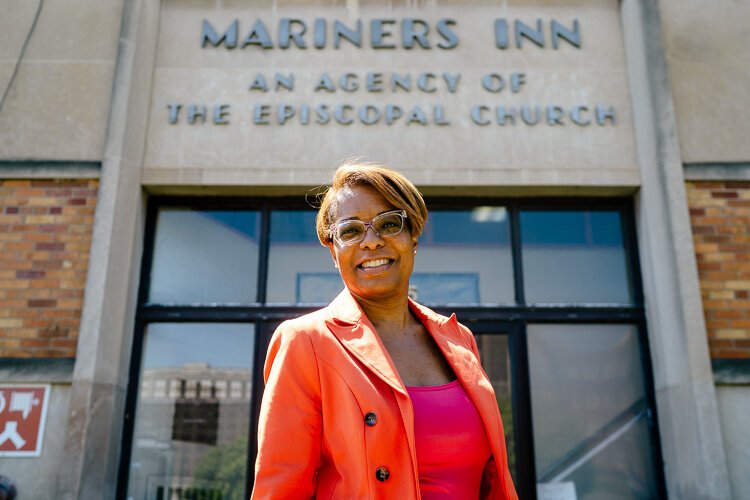Mariners Inn finds ways to put clients’ concerns at ease amid the pandemic
At Mariners Inn, we welcome men who struggle with drug and alcohol addictions. We can’t perform most of our services remotely, so we have needed to adapt to ensure our men’s safety.

At Mariners Inn, we welcome men who struggle with drug and alcohol addictions. We can’t perform most of our services remotely, so we have needed to adapt to ensure our men’s safety.
In the summer, we always see our numbers go down because for most people, it’s easier to live in an abandoned house or on the streets when the weather’s a little bit warmer. Despite that, with COVID we had to keep our intakes lower to keep social distancing with our clients. In our residential program, we’re at about 40-45 men instead of 80.
We also don’t want to overwhelm the men or the staff because many people are anxious and fearful. Communication has been helpful in quelling the fear by constantly sharing updates and information about the virus.
We have a quarantine area in the building next door. All men entering the program are given a bed in the quarantine area until tested and receive a negative result. After the client receives a negative result, they are able to come into the residential treatment program. We always run the risk of staff members leaving every day and possibly contracting the virus — we go to the store or visit loved ones.
We don’t know what people are doing when they leave here. So we’ve done more to make sure that the staff is safe. Everybody’s temperature is taken when they come in, they answer questions about travel, and if they’ve been around someone who tested positive. If a staff member presents with symptoms, they are asked to stay home and get tested. We are working with a private nursing company and lab so we are able to test our clients weekly and staff monthly. Thankfully with our last set of tests, everyone tested negative!
Visitation has been difficult. When the pandemic hit, we stopped all visitation to keep the clients safe, but we started it back up for Father’s Day weekend. We had decided to visit outside and physically distanced; guests would not have to come into the building (portable toilets were in the backyard). Clients had to schedule the visitation in advance, so we didn’t have more than six clients visiting at the same time.
However, since the executive order, we had to stop face-to-face visitation and set up a virtual option. We’re assuming that family and friends feel comfortable and safe communicating that way. It’s different, especially for our population, to not be able to have loved ones come here and see them or hug them. This virus is really making us look at different ways of doing things, and we’re trying to have it as close to normal as possible for our clients because that can impact their mental health and sobriety.
I will be surprised if anybody goes through this without impacting their mental health based on anxiety, fear, or isolation. More people are drinking, and opioid overdoses have increased. Sometimes, when a person feels hopeless, the next thought is, “I just don’t need to be here.” We need to make sure we’re addressing the issues that are making them feel that way, and let them know everything will be fine.
We have to start creating our “new normal.” We will have to live with the effects of COVID in 2021 and beyond. Our goal at Mariners Inn is to make the clients feel safe and secure to focus on their recovery and not worry about getting sick while they’re here. We are determined to help them through the obstacles of addiction and mental illness, to create their future.
Carina Jackson is the chief operations officer for Mariners Inn, a Detroit shelter and treatment center for men. Stay tuned for her next entry in our Nonprofit Journal Project, an initiative inviting nonprofit leaders across Metro Detroit to contribute their thoughts via journal entries on how COVID-19 is impacting the nonprofit sector–and how they are innovating. This series is made possible with the generous support of our partners, the Michigan Nonprofit Association and Co.ACT.




